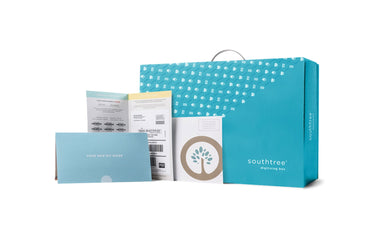This winter while you’re keeping warm by sipping down a cup of hot chocolate, you’ll probably have a lot on your mind.
Questions like: How do I wrap an oblong gift? Will grandma give me socks again this year? When are they going to air Home Alone on TV? Why is that beach vacation so far off still?
But among these brain-busting inquiries – as you happily yet patiently slurp your hot cocoa, trying not to scorch your tongue – have you ever thought what chocolate does to your mind?
Delectable or drug?
You see, people love chocolate so much because it not only tastes delicious, that perfect blend of savory salty sweetness, but it’s addictive – for real. It’s like a tasty wonder drug full of compounds eerily similar to those you’d find in ecstasy, marijuana and morphine. Whoa! So if you’re shoveling handfuls of chocolate into your mouth, you’re actually taking drugs? No, not exactly.
Chocolate isn’t considered a drug or regulated by the FDA because those pleasure-inducing and stimulating chemical compounds found in your favorite candy bar and cup of hot cocoa are in drastically small amounts. But there are over 300 plus compounds in chocolate and each has their own unique effect on the brain, especially those found in dark chocolate.
The good side of dark chocolate
Dark chocolate may be more of an acquired taste compared to milk chocolate, but it’s one you should start acquiring because unlike milk chocolate it’s actually good for you (in controlled amounts).
Here’s a breakdown of a few of the chemicals found in dark chocolate and what they do to your brain:
- Caffeine - Our favorite perk-me-up substance that helps keeps us alert
- Tryptophan & serotonin- Keep us relaxed and help us feel at ease
- Theobromine - A stimulant that increases blood flow
- Phenylethylamine - A stimulant that releases dopamine from the brain, a pleasurable and motivational neurotransmitter
- Flavonoids - Another blood flow-boosting compound that can aid in learning and memory retention
- Antioxidants - Super food culprit that helps neutralize free radical damage due to oxidation while preventing premature brain cell aging
- Magnesium - Billed as the “original chill pill,” Mg helps reduce stress by suppressing the release of the stress hormone, cortisol
- Phytochemicals - Oddly enough, dark chocolate can help curb food cravings by limiting junk food intake while promoting healthier alternatives
- Prebiotic - Aids in the body’s maintenance of good bacteria levels while keeping bad bacteria in check
So, quick recap. Dark chocolate makes you feel alert yet at ease, while also motivated yet relaxed. It can help you learn while simultaneously preventing brain cell damage and curbing junk food cravings. And, as if it couldn’t get any better, dark chocolate is good for your heart.
Sounds like all the best drug effects rolled into one delicious salty, sweet treat? But how much dark chocolate should you consume per day to reap these brain-boosting benefits? It turns out a little can go a long way. The recommended dark chocolate intake is approximately 1-2 ounces per day. So this winter when you’re cold and craving some hot chocolate, do your brain a favor and make it a dark.













